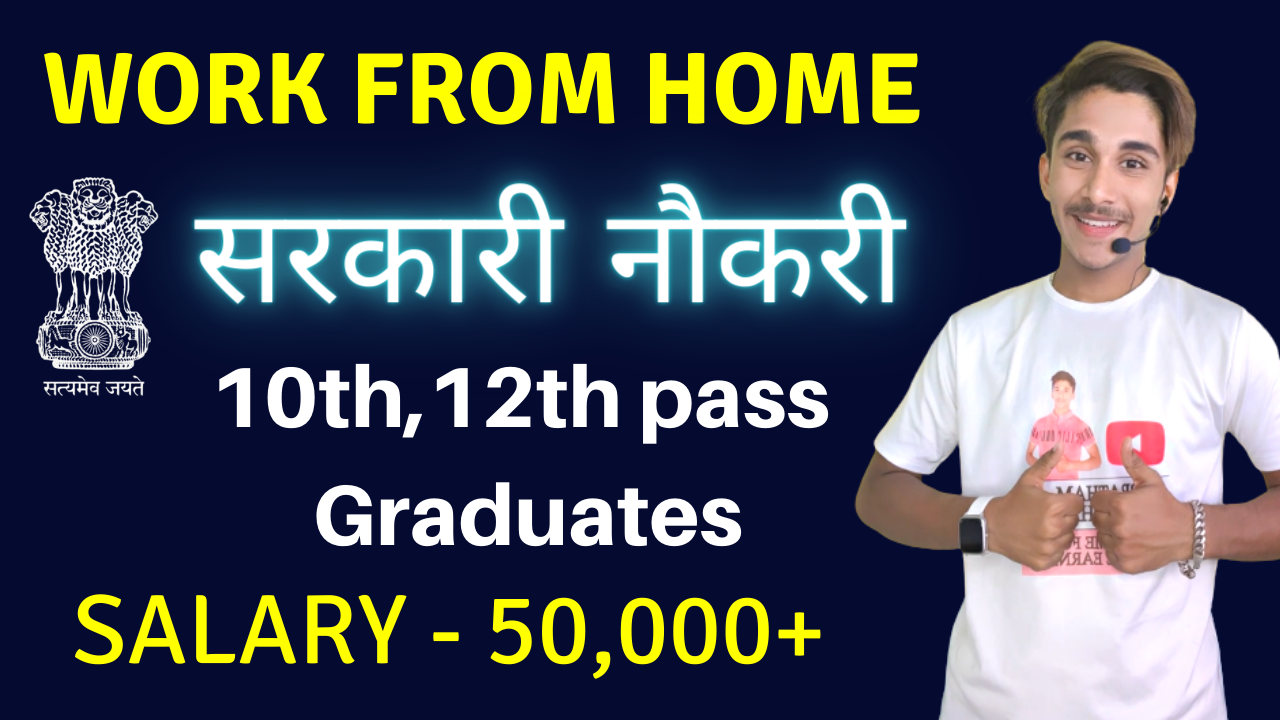अधिक जानकारी के लिए देखें यह वीडियो
LINK - https://youtu.be/GkdUD5ydzrE
Government Job Portal NCS
National Career Service (NCS) is a
one-stop solution that provides a wide array of employment and career-related
services to the citizens of India.
A National ICT based portal to connect the opportunities with
the aspirations of youth and facilitate registration of job seekers, job
providers, skill providers, career counsellors, etc. The portal should provide
job matching services in a highly transparent and user friendly manner.
NCS brings young people from different backgrounds together in common purpose. It equips them with new skills and gives them the tools to make a difference. It helps them discover the depths of their talents and the scale of their potential.
National
Career Service is a Five Year Mission Mode Project launched by the Hon’ble
Prime Minister on 20th July, 2015. The project is being implemented by the
Directorate General of Employment, Ministry of Labour & Employment.
National Career Service (NCS) is a one-stop solution that provides a wide array
of employment and career related services to the citizens of India. It works
towards bridging the gap between jobseekers and employers, candidates seeking
training and career guidance, agencies providing training and career
counselling.
The NCS project reaches out to the people of this country through its three essential pillars i.e. a well designed ICT based portal which is NCS portal, Country wide set up of Model Career Centers and Interlinkage with all the states through employment exchanges.
The digital centralized portal provides a
wide range of career related services including job search, job matching, rich
career content, career counselling, information on Job Fairs, services of local
service providers like drivers, plumbers, etc. for households and various other
services. This portal facilitates registration of Job Seekers, Employers, Skill
Providers, Career Counsellors, Local Service Providers (LSP’s), Career Centers,
Placement Organisations, Households (for availing the services of the LSP’s)
and Government Departments.
The
portal is also supported by a multi lingual call center where the users can
call the NCS Toll Free Number 1800-425-1514 for any support. The services of
the call center are available from Tuesday to Sunday from 8:00 AM to 8:00 PM in
seven different languages i.e Hindi, English, Bengali, Kannada, Malayalam,
Tamil and Telugu. The services on the NCS Portal are delivered through multiple
channels like Computers/Mobile browsers, Common Service Centers (1 lakh +
centers), Career Centers (900+ Employment Exchanges, 100+ Model Career Centers)
and Post Offices. NCS does not charge any fees for registration on the portal
and its services.
Vacancies all India
As u
can see in picture given below every state and city of India is containing lots
of vacancies.
In
these vacancies all can apply
- Freshers
- Students
- Housewife
About the Ministry
The Ministry of Labour & Employment is one of the oldest and important Ministries of the Government of India. The main responsibility of the Ministry is to protect and safeguard the interests of workers in general and those who constitute the poor, deprived and disadvantage sections of the society, in particular, with due regard to creating a healthy work environment for higher production and productivity and to develop and coordinate vocational skill training and employment services. Government’s attention is also focused on promotion of welfare and providing social security to the labour force both in organized and unorganized sectors, in tandem with the process of liberalization. These objectives are sought to be achieved through enactment and implementation of various labour laws, which regulate the terms and conditions of service and employment of workers. The State Governments are also competent to enact legislations, as labour is a subject in the concurrent list under the Constitution of India.
At present, there are 44 labour related statutes enacted by the Central Government dealing with minimum wages, accidental and social security benefits, occupational safety and health, conditions of employment, disciplinary action, formation of trade unions, industrial relations, etc. The list of Central Acts is annexed.
Welfare of the Unorganized Sector Workers
As per the survey carried out by the National Sample Survey Organization in the year 2009-10, the total employment, in both organized and unorganized sectors in the country was of the order of 46.5 crore comprising around 2.8 crore in the organized sector and the balance 43.7 crore workers in the unorganized sector. Out of 43.7 crore workers in the unorganized sector, there are 24.6 crore workers employed in agricultural sector, about 4.4 crore in construction work and remaining in manufacturing and service. In order to ensure welfare of workers in the unorganized sector which, inter alia, include weavers, handloom workers, fishermen and fisherwomen, toddy tappers, leather workers, plantation labour, beedi workers, the ‘Unorganized Workers’ Social Security Act, 2008’ has been enacted. As per the provisions of the Act, a National Social Security Board has been constituted for recommending formulation of social security schemes viz. Life and disability cover, health and maternity benefits, old age protection and any other benefit as may be determined by the Government for unorganized workers.About the Ministry
The Ministry of Labour & Employment is one of the oldest and important Ministries of the Government of India. The main responsibility of the Ministry is to protect and safeguard the interests of workers in general and those who constitute the poor, deprived and disadvantage sections of the society, in particular, with due regard to creating a healthy work environment for higher production and productivity and to develop and coordinate vocational skill training and employment services. Government’s attention is also focused on promotion of welfare and providing social security to the labour force both in organized and unorganized sectors, in tandem with the process of liberalization. These objectives are sought to be achieved through enactment and implementation of various labour laws, which regulate the terms and conditions of service and employment of workers. The State Governments are also competent to enact legislations, as labour is a subject in the concurrent list under the Constitution of India.
At present, there are 44 labour related statutes enacted by the Central Government dealing with minimum wages, accidental and social security benefits, occupational safety and health, conditions of employment, disciplinary action, formation of trade unions, industrial relations, etc. The list of Central Acts is annexed.
Welfare of the Unorganized Sector Workers
As per the survey carried out by the National Sample Survey Organization in the year 2009-10, the total employment, in both organized and unorganized sectors in the country was of the order of 46.5 crore comprising around 2.8 crore in the organized sector and the balance 43.7 crore workers in the unorganized sector. Out of 43.7 crore workers in the unorganized sector, there are 24.6 crore workers employed in agricultural sector, about 4.4 crore in construction work and remaining in manufacturing and service. In order to ensure welfare of workers in the unorganized sector which, inter alia, include weavers, handloom workers, fishermen and fisherwomen, toddy tappers, leather workers, plantation labour, beedi workers, the ‘Unorganized Workers’ Social Security Act, 2008’ has been enacted. As per the provisions of the Act, a National Social Security Board has been constituted for recommending formulation of social security schemes viz. Life and disability cover, health and maternity benefits, old age protection and any other benefit as may be determined by the Government for unorganized workers.
Helpline Number Link - CALL NOW








.png)




.png)

